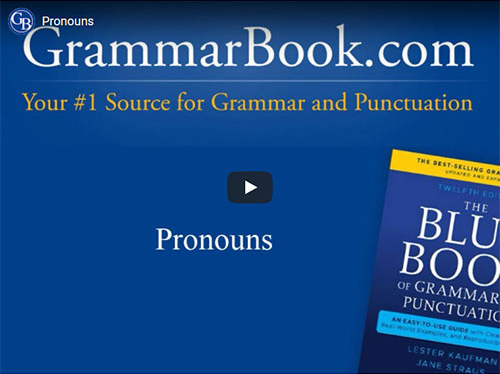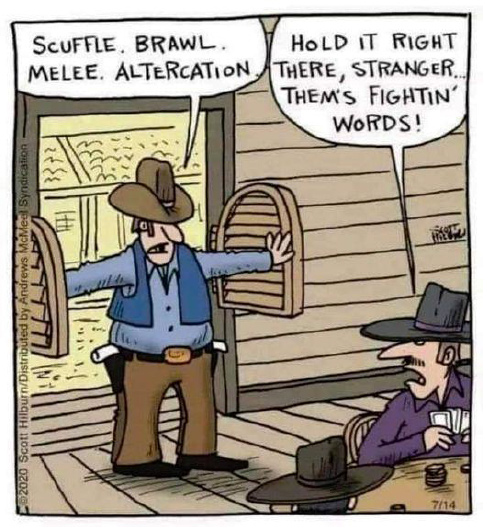|
Many of us have heard of prefixes and suffixes along the way in learning English grammar. Prefixes and suffixes both belong to a larger category, the affix.
An affix is any bound morpheme attached to a root word to form a new word or word form with a new meaning. Because they are morphemes, affixes are not independent units: They must be linked to the root to complete their function.
For example, many of us have seen the affix -est. It means little to us on its own other than to suggest a superlative (the greatest of something). When we attach the affix to the root word smart, we have a definable word, smartest, which gives us a new form of smart with an adjusted meaning (the superlative).
Similarly, we may often see the affix bio-, which means less to us when it's alone. Attached to the root word sphere, however, it creates a full word to comprehend: biosphere.
Affix Examples: Prefixes
When an affix is added to the start of a word, it is a prefix. Some well-known prefixes in English are a-, un-, in-, and mis-: atypical, undo, infuse, misplace.
We see how a prefix can transform a word's meaning (typical and atypical are opposite descriptions). As we've mentioned, an affix as a prefix also can create a new word or word form with a new meaning. When we add auto- to graph, for example, we make the new word autograph.
The following affixes are other common English prefixes:
| Prefix |
Meaning |
Example |
| anti- |
against |
antisocial, antivirus |
| de- |
reversal, removal, departure |
decompose, dethrone |
| micro- |
very small |
microcosm, microorganism |
| sub- |
under |
subordinate, submarine |
Affix Examples: Suffixes
When an affix is added to the end of a word, it is a suffix. Some well-known suffixes in English are -ful, -ize, -ment, and -ness: bountiful, memorize, merriment, happiness.
These are examples of derivational suffixes, which alter a word's form or meaning. Suffixes also can be inflectional to convey a word's grammatical behavior or function, such as when we add -s to a word to change from it from singular to plural (e.g., book > books). Other inflectional suffixes would be -ed and -ing as verb endings that convey tense (e.g., he washed, she is working).
The following affixes are other common English suffixes:
| Suffix |
Meaning |
Example |
| -able, -ible |
can be done |
manageable, mixible |
| -ic |
having traits of |
fantastic, ironic |
| -less |
without |
fearless, motionless |
| -y |
characterized by |
tasty, quirky |
Here we also see the orthographic (spelling) changes that can occur at the end of the root word when the suffix is attached: fantasy + -ic = fantastic, taste + -y = tasty.
When to Hyphenate an Affix
In daily formal writing in American English, we typically will not hyphenate an affix when we add it to a word.
An exception with a hyphenated prefix can be when the hyphenation results in something other than an actual word. The prefix is not a part of the word or phrase but still offers information to it.
Examples
pre-Soundgarden (before the 90s alt-rock band came to be)
anti-Magilla Gorilla (against the cartoon primate)
ex-president (former president) |
In each example, we attach a prefix to offer extra detail about a word or a phrase. However, the new form is not something we would find without a hyphen in a dictionary—i.e., preSoundgarden, antiMagilla Gorilla, expresident.
In some cases we might also use a hyphen with a prefix to avoid doubling of letters between the prefix and the first letter of the root word.
Examples
pre-existing
anti-inflammatory
co-opt |
Hyphenated suffixes are less common than hyphenated prefixes. We would typically use them only to identify that the result is a manufactured word or to avoid doubling of letters between the last letter of the root word and the suffix.
Examples
Beatle-ness (like or resembling the Beatles)
urban-ish (having urban characteristics)
sushi-ism (a word or description pertaining to sushi) |
Affix: Different from Compound Words
A word with an affix differs from a compound word. As we've mentioned, because an affix is a bound morpheme, it cannot stand alone: It must have a root word to be viable.
Examples: Affixes
deodorize
disassociation
unidentifiable |
Examples: Compound Words
chickpea
boyfriend
run-in |
You can see in our affix examples that each builds a word with a prefix, a root word, and a suffix. The prefix and suffix depend on the root word to function.
In the compound words, we take established words and combine them with others to form new ones. Neither depends on the other to function.
Related Topics
Hyphens with the Prefix re
Hyphens with Common Prefixes
What Is a Suffix—and How Should You Use One?
|





